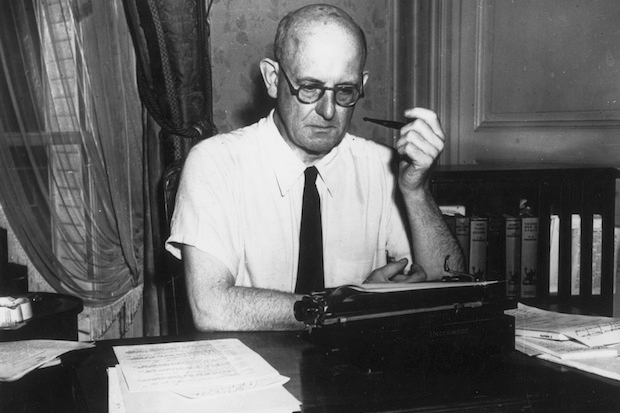In the reminiscences of Bertie Wooster we find this:
As I sat in the bathtub, soaping a meditative foot and singing, if I remember correctly, ‘Pale Hands I Loved Beside the Shalimar’, it would be deceiving my public to say that I was feeling boomps-a-daisy.
The sentence is quoted for its use of ‘meditative foot’, in the Winter 1973 issue of the learned journal Linguistic Inquiry, by Robert A. Hall in his ‘Transferred Epithet in P. G. Wodehouse’, now as well-thumbed as any article can be that is perused principally online. Stephen Fry is always citing it. Mark Forsyth, however, quotes the sentence as an example of litotes — affirming something by denying its opposite. Orwell was wary of that figure of speech, advising writers tempted by it to think of the sentence, ‘A not unblack dog was chasing a not unsmall rabbit across a not ungreen field.’ Economically, Forsyth also points out that in Bertie Wooster’s remark ‘Pale Hands’ is an example of synecdoche.
To find three rhetorical figures of speech in one sentence by Wodehouse fits our knowledge of him as a rather artificial writer.

Get Britain's best politics newsletters
Register to get The Spectator's insight and opinion straight to your inbox. You can then read two free articles each week.
Already a subscriber? Log in







Comments
Join the debate for just £1 a month
Be part of the conversation with other Spectator readers by getting your first three months for £3.
UNLOCK ACCESS Just £1 a monthAlready a subscriber? Log in